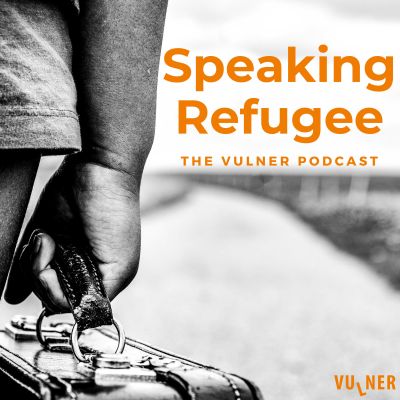A six parts podcast series that explores how refugees experience their „vulnerabilities“ when seeking asylum. In this podcast we want to focus on the individual experiences and feelings, that constitute the „vulnerability“ of refugees and that are often overlooked. - We bring together scientific field work AND the stories of refugees. We wanted to know: How does vulnerability show at the different stages of the migration process? To answer this question we talked to three people from three different countries: You will meet Jameela, who is a refugee from Afghanistan and currently in an accommodation centre in Belgium. Gabriel, who has a refugee history himself and is now working with refugees in Uganda. And we talked to Fatima, a humanitarian worker in the MENA region with Basmeh and Zeitooneh – one of the areas of concentration is Lebanon. This podcast is a part of the VULNER project, a research project that aims to understand the vulnerabilities faced by migrants, to enable decision-makers to better identify positions of vulnerabilities and address them...
https://vulner.podigee.io/
Episode 6: Capital
In this part we talk about capital in general. Money is certainly an important type of capital - but not the only one. In general, capital can be described as anything a person or entity is able to „spend“ or use when competing with others on any market.
To buy food, have a home for your family and pay for an education for your kids - you will need money. So let’s talk about it! And to broaden the perspective a little, we will talk about capital in general. Money is certainly an important type of capital - but not the only one.
The Capital Theory of Pierre BourdieuThinking with the quite famous French sociologist Pierre Bourdieu, there are more kinds of capital than just money. Besides the economic capital, which is indeed the money you own or inherit, Bourdieu also defines cultural and social capital.
Bourdieu said: „The cultural capital is the cultural knowledge that serves as currency, that helps us navigate culture and alters our experiences and the opportunities available to us.“ And: "social capital is the sum of the resources, actual or virtual, that accrue to an individual or a group by virtue of possessing a durable network of more or less institutionalized relationships of mutual acquaintance and recognition.“
The capital of refugeesFatima told us about Syrian people trying their best to be strong together, although the status of Syrian refugees in Lebanon is really hard right now. Other people, like Gabriel, rely on their education - cultural capital - to enable them to get a job and being part of a new society by learning the language. Social and cultural capital are both resilience strategies in times of economic hardship. But when they are missing - even if the economic needs are being met, like in Jameela’s case - it is very challenging too.
Humanitarian aid workers or social workers all over the world, like Fatima and many others - they try their best to make up for missing social capital. Teachers like Gabriel, who teaches a language and the rights all refugees have in Uganda, try to support others in building their own cultural capital. But as we have seen in Lebanon: When the country itself struggles massively on the economic level, it affects the most vulnerable members of society first.
Links:
- The Vulner Website
- VULNER Reports
This project has received funding from the European Union‘s Horizon 2020 research and innovation programme under grant agreement No 870845.
This Podcast was produced by hauseins.fm
